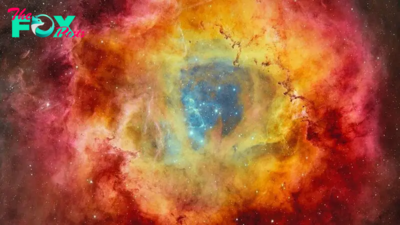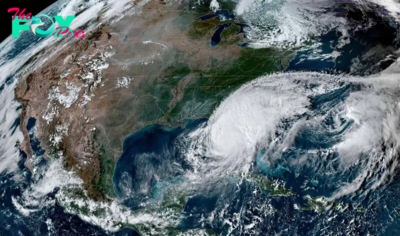Science
1st detection of 'hiccupping' black hole leads to surprising discovery of 2nd black hole orbiting around it
Astronomers have spotted the first known instance of a black hole "hiccup," from a distant cosmic behemoth. The cosmic belches suggest the swirling disks of matter and gas that surround black holes may be home to bigger cosmic objects than previously thought.
The monster black hole, which weighs the equivalent of about 50 million suns and lives in the heart of a galaxy 800 million light-years from Earth, is ejecting hunks of gas into space once every 8.5 days before going quiet again. These "hiccups" come from the black hole's accretion disk, a ring of superheated gas that swirls around the object.
A new study, published March 27 in the journal Science Advances suggests this material is being belched out thanks to a second, smaller black hole that's swooshing in and out in a tilted orbit, kicking up gas like a fast-flying bee buzzing through a cloud of pollen.
These hiccups "were a total surprise," study lead author Dheeraj Pasham, a research scientist with the Kavli Institute for Astrophysics and Space Research in Massachusetts, told Live Science. "We kept scratching our heads for months until the theorists in the Czech Republic came in and provided an explanation of a secondary black hole, which appears to explain all the properties of this system."
Related: Scientists may finally know where the biggest, oldest black holes in the universe came from
The results suggest the accretion disks around black holes may be home to a surprising array of cosmic objects, including other black holes and stars.
"We thought we knew a lot about black holes, but this is telling us there are a lot more things they can do," Pasham said in a statement. "If our model of a companion repeatedly punching through the accretion disk is right," he told Live Science, "then these hiccups can unveil a whole population of such extreme binaries."
-

 Science2d ago
Science2d agoInside Capitol Hill’s Latest UFO Hearings
-
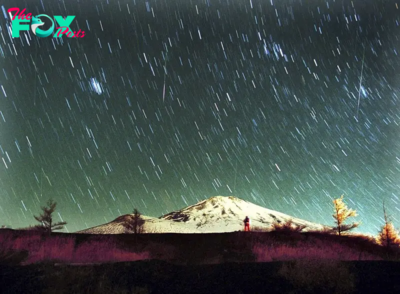
 Science2d ago
Science2d agoYou Won’t Want to Miss the Leonid Meteor Shower. Here’s How and When You Can See It
-
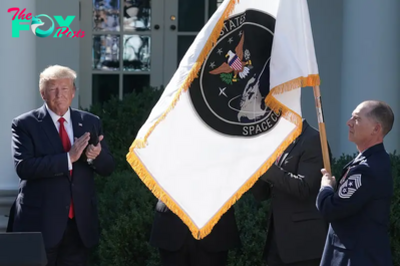
 Science3d ago
Science3d agoHere’s What Trump’s Win Means for NASA
-

 Science6d ago
Science6d agoWhy Risky Wildfire Zones Have Been Increasing Around the World
-

 Science6d ago
Science6d agoIt’s Time to Redefine What a Megafire Is in the Climate Change Era
-

 Science1w ago
Science1w ago4 Astronauts Return to Earth After Being Delayed by Boeing’s Capsule Trouble and Hurricane Milton
-
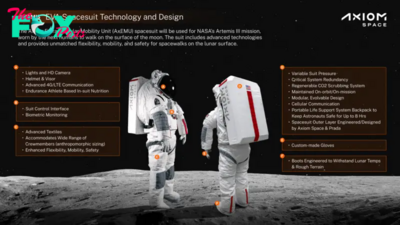
 Science1w ago
Science1w agoThe Elegance and Awkwardness of NASA’s New Moon Suit, Designed by Axiom and Prada
-
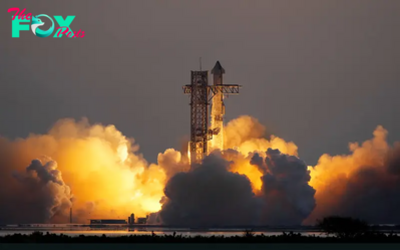
 Science1w ago
Science1w agoSpaceX Launches Its Mega Starship Rocket. This Time, Mechanical Arms Catch It at Landing
